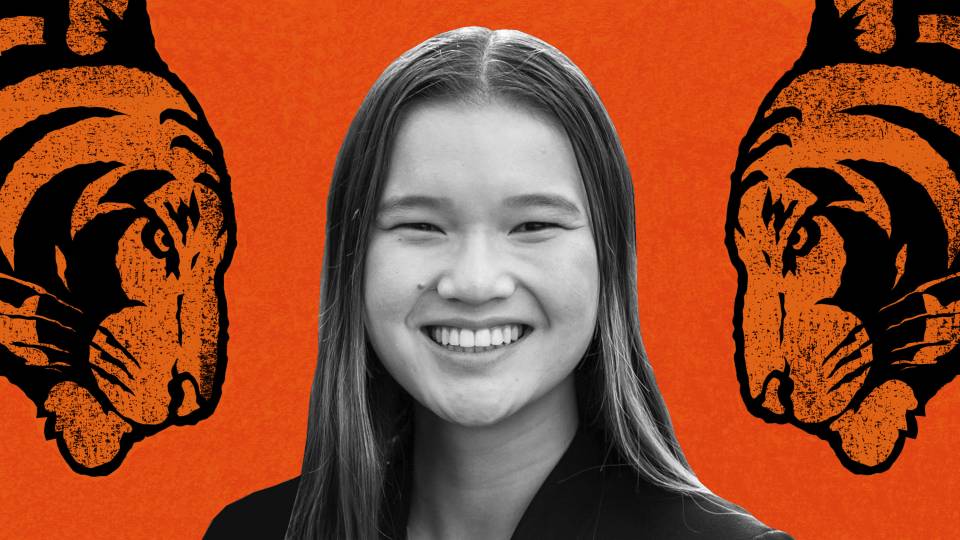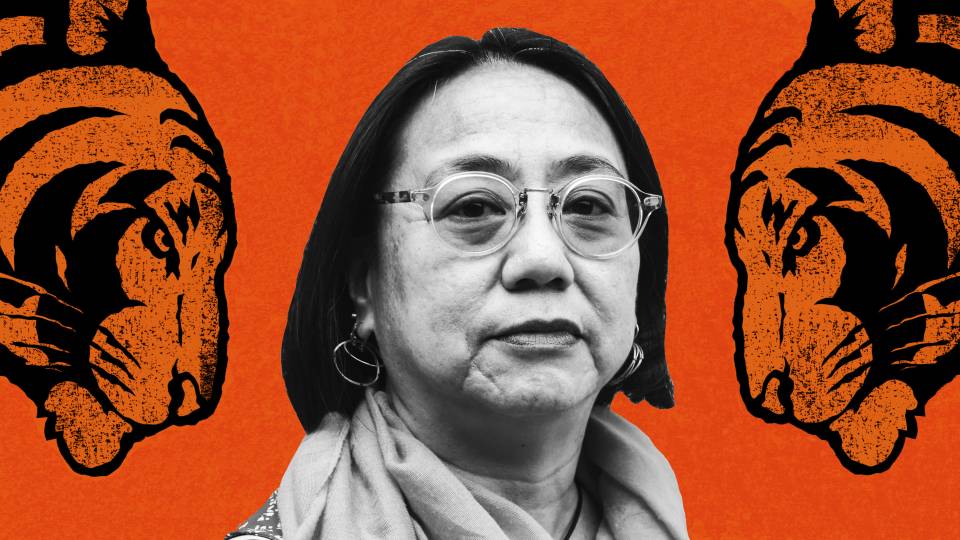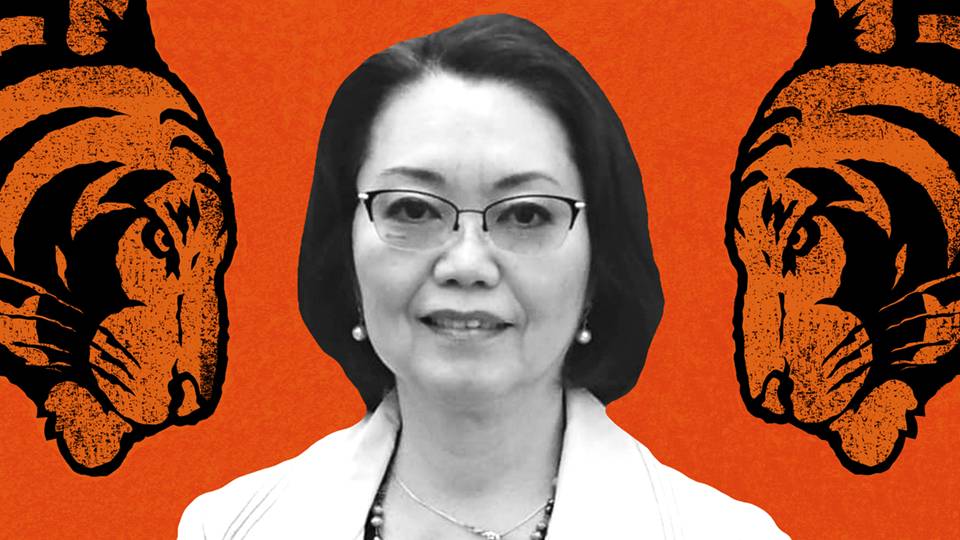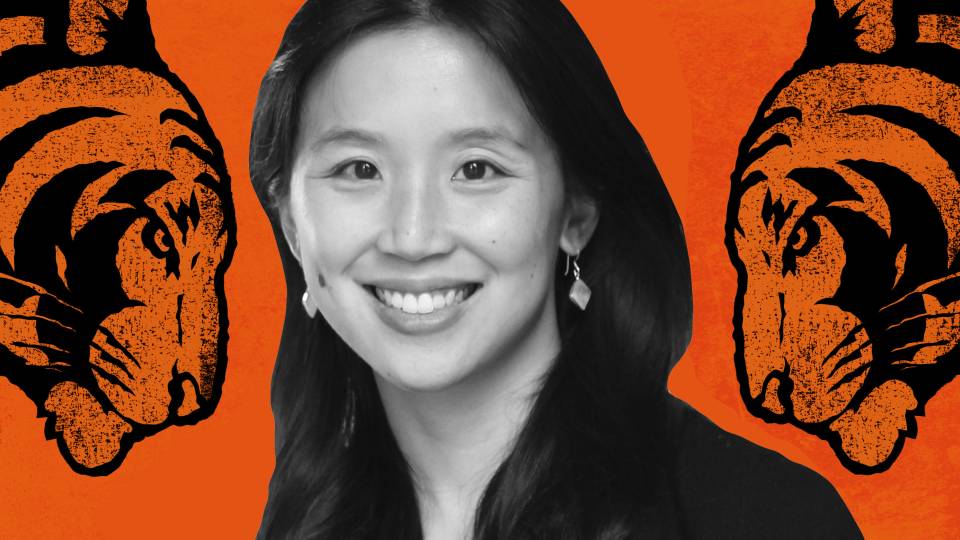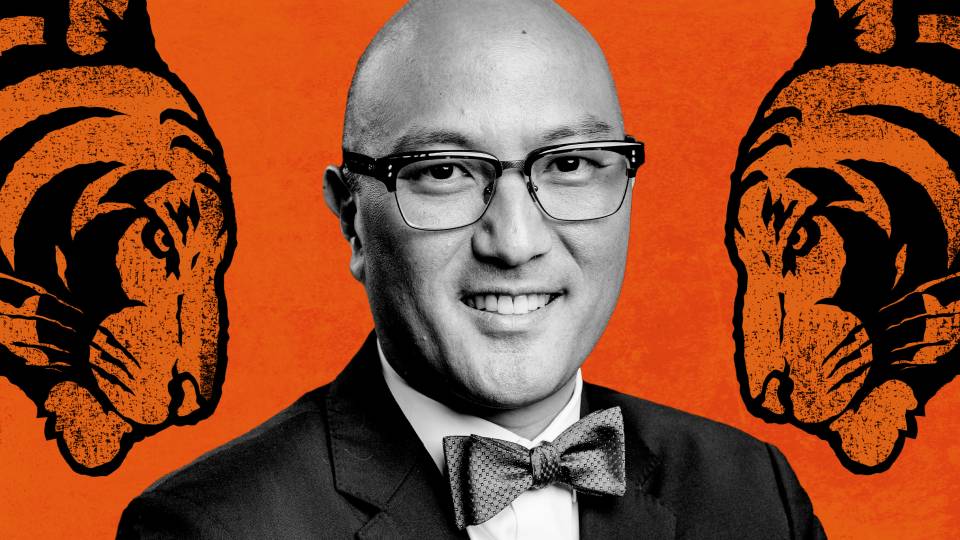The Year of the Tiger that launched with this Lunar New Year is a moment of pride and reflection for Princeton’s vibrant Asian and Asian American community. Throughout the year, we are elevating the voices of faculty, staff, students and researchers in a series of thoughtful interviews exploring questions of identity, pride, hope, the lived experience of anti-Asian racism, and meaningful steps that allies can take.

June Huh
We continue the series with June Huh, a professor of mathematics at Princeton who won the Fields Medal, one of the greatest honors in mathematics, in July and then in October was awarded a MacArthur Fellowship, better known as a genius grant, both for his unique approach to solving mathematical puzzles. Huh completed his B.S. and M.S. at Seoul National University and received his Ph.D. from the University of Michigan. He had a series of fellowships and visiting professorships, including multiple stints at the Institute for Advanced Study during which he taught courses at Princeton University, before formally joining the Princeton faculty in 2021.
How do you self-identify?
First and foremost, I identify as a mathematician. But in this context — and I rarely think about things in this context — it's complicated. I was born in the U.S. while my parents were grad students, but I was brought back to Korea pretty early, so I don't have a real memory of living as a baby in the U.S. I spent most of my life in Korea until my mid-20s, and then I went back to the U.S. for grad school. Since then, for the past 15 years or so, I've been living in the U.S.
If you caught me when I was young and asked me that question, I would undoubtedly have told you that I identify as a Korean, but now, after those 15 years, maybe I would answer that I identify myself as a Korean American. But I rarely think about my identity from this frame.
What makes you proud to be Asian American?
One thing I'm fond of from my background and upbringing is that I grew up in completely different contexts for the first and second halves of my life.
Korea is an extremely homogeneous society. There, you never think about “us versus them” — we are all part of a very big one. And then I was transplanted to America, which is extremely diverse. I had to learn to speak English. I mean, I’d learned it in school and I watched Hollywood movies and I read “The Lord of the Rings.” But English as a spoken language, as a tool for conversation and communication, that was pretty new to me.
As a result of this personal history, I get to have a sort of dual processing machine inside my brain. I think in words, in sentences, and depending on what language I use to think, it's completely different. The two modes have somewhat different characteristics and, to some extent, personalities. It feels nice, and it's very convenient. It's like having a very trustworthy friend that you can always talk to and is always available.
I'm mostly thinking about this in a mathematical context. As a mathematician, you want to do something pretty difficult, and oftentimes you get stuck. And then you can just switch the language you're using. If you try something and fail, then when you switch languages — you may fail again, but it’s a completely fresh start. It’s like a completely new mind, looking at things from a whole new angle. This has been very, very useful.
What can allies and others do to combat anti-Asian racism?
This is exactly the kind of question I’m not very qualified to answer. Of course I've experienced it. There’s often this weird thing that's probably specific to anti-Asian racism: I’m walking on the street and someone shouts something in Chinese or Japanese, and it's probably directed toward me, but of course I have no idea of what they're saying. (My mentor was from Japan, but we always spoke in English.) I just try to ignore it and pretend that they are not talking to me.
I grew up in a completely homogeneous society, and then when I was transplanted to the U.S. I lived in this very unique society — this bubble — which is the society of mathematicians. I am completely naïve, because I did not have to directly confront these types of problems. But now I'm a parent of a kid who goes to elementary school, and I am terrified, because I have very little idea about what it is like to grow up in the U.S. as an Asian kid.
Well, that's not entirely true. I had a brief exposure to American society when I was in second grade. My parents were on sabbatical, so I spent one semester — six months — first, in Urbana-Champaign, Illinois, and then, later, Columbus, Ohio. So I went to an American elementary school for one semester. And it was terrifying. I didn't find anyone like me in the classrooms, and I didn't know how to use English. Some of my classmates were not so friendly initially, so my solution was to just completely shut down. I didn't say anything in school for six months. Maybe that was not the best response, but that was the strategy I used.
So I am still mostly ignorant of what it is like for kids to go to school and make friends and just grow up in this country. I think I'm about to learn, at least secondhand, and that's exciting and frightening at the same time.
I have Korean American friends here whose parents are from Korea, but they were born here and raised here. Of course, they have horrifying stories to share, but one hopeful thing is that they tend to envy their kids. A lot.
These days, kids know about BTS, they know some K-pop songs, and maybe they have seen some Korean characters on TV. Of course, the kids typically do not agree, but to their parents, there’s a world of a difference from the environment they grew up in.
Are there examples from what you're involved in to counter anti-Asian racism that you think would help others?
I should probably refrain from saying anything. I do not have a very good understanding of this. I don't know how to combat it, but I'm very grateful that there are people who have some ideas and have the courage to do it.
On a personal level, I have this very deep confidence that life experience, firsthand contact with people with different backgrounds, and having more and more such experience, gives you a chance to mature and open up to other groups.
I don't know how to achieve this on a very big scale, but members of the mathematical community are trying to do this on a smaller scale, and I think we're progressing.
I mean, we're not perfect, but it is so much easier for us, because we all have a common passion. It’s universal. So it's very easy to make friends and see what we have in common with each other. Stereotypes can't hold up against lived experience. Real-life experiences — the texture is so very detailed that no stereotype can fit into even a tiny fraction of a real-life experience.
